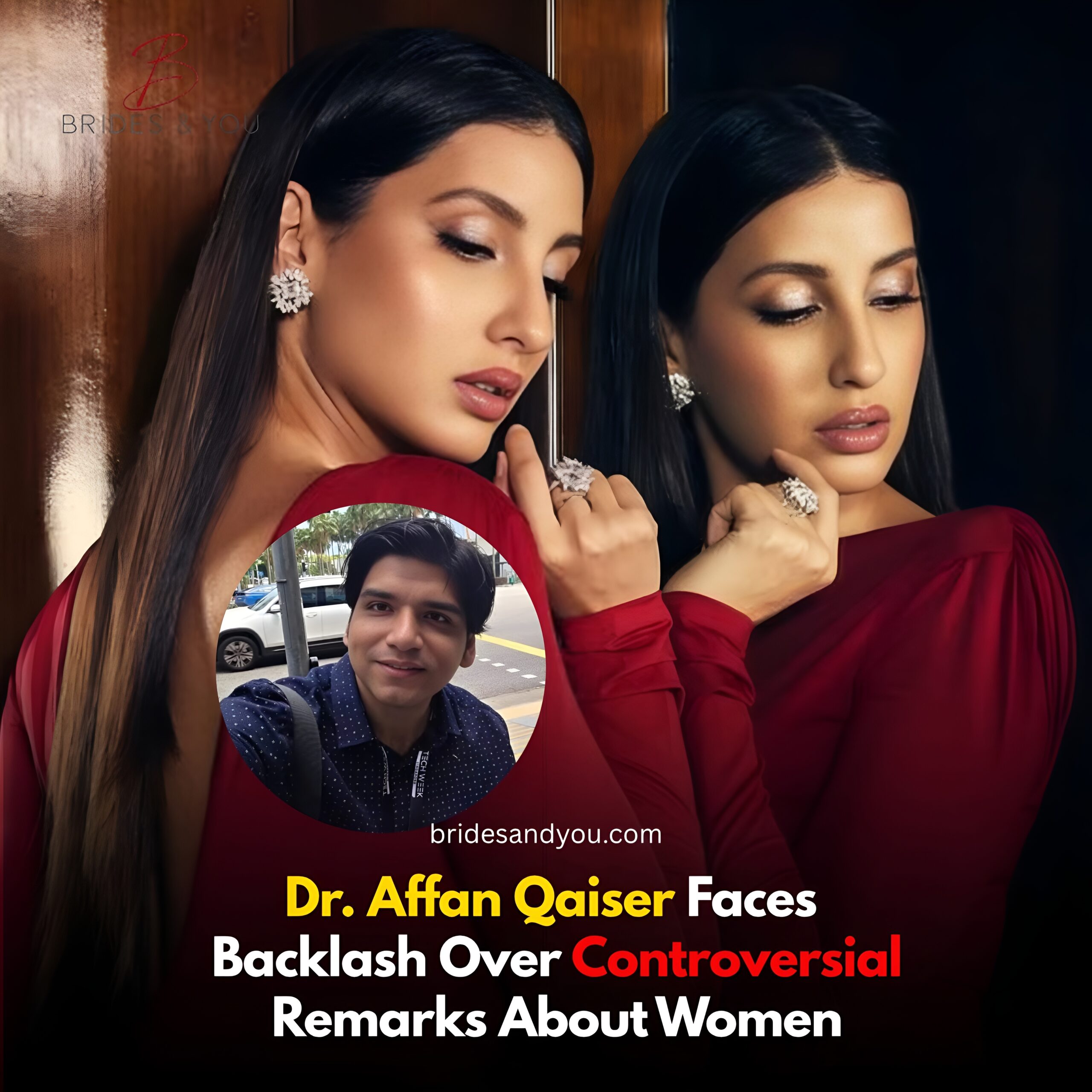Now Reading: Dr Affan Qaiser Criticized for His Demeaning Statements About Women in Viral Podcast
-
01
Dr Affan Qaiser Criticized for His Demeaning Statements About Women in Viral Podcast
Dr Affan Qaiser Criticized for His Demeaning Statements About Women in Viral Podcast

Dr Affan Qaiser, a well-known Pakistani gastroenterologist and transplant hepatologist, has recently found himself at the center of a major controversy. Known for his educational videos and medical awareness content, Dr Affan has earned millions of followers online. However, his latest podcast remarks have sparked a wave of criticism, leading to widespread debate on social media about respect, professionalism, and women’s dignity.

Who is Dr Affan Qaiser?
Dr Affan Qaiser is one of Pakistan’s most recognized medical figures, appreciated for his approachable personality and health education efforts. With more than 5 million followers on Facebook and 430,000 subscribers on YouTube, he has built a strong reputation as a public health educator.
He often shares insights on lifestyle diseases, gut health, and fitness, aiming to educate the masses in a friendly tone. He is married to Dr Nazish Affan, who is also a doctor. Together, they share glimpses of their family life with their two daughters and young son, portraying a happy, balanced household.
However, the same online presence that helped him gain admiration has now turned into the source of intense criticism.
The Controversial Podcast Clip That Sparked the Outrage
The controversy began after a clip from Dr Affan Qaiser’s recent podcast with Dr Mushtaq Ahmed Orakzai went viral. In the conversation, Dr Affan made remarks that many found insulting and disrespectful toward women.
He stated,
“If there is a fat woman with hair on her face, it means her hormones are disturbed. How can a man be attracted to her, especially when he has beautiful women available on the internet or elsewhere?”
This statement was seen as deeply offensive and judgmental, especially coming from a medical professional who holds influence over millions. The comment not only body-shamed women but also normalized comparing them to unrealistic beauty standards seen online.

Public Reaction: Backlash Over Dr Affan Qaiser’s Remarks
Soon after the clip went viral, social media platforms such as Facebook, Instagram, and X (formerly Twitter) were flooded with criticism. Many users accused Dr Affan of promoting misogyny and disrespecting women under the guise of humor or casual discussion.
One social media user expressed,
“I didn’t like this video and felt really sad because it insulted women.”
Another commented sarcastically,
“I think Dr Saab is more interested in Nora Fatehi than his wife.”
A woman wrote,
“We tolerate men with the most unattractive features, yet they have the audacity to complain about women’s weight.”
These reactions reflect the frustration of many women who feel that such statements from influential figures encourage harmful stereotypes and objectification.
Guest’s Response and Further Debate
During the same discussion, Dr Mushtaq Ahmed Orakzai, the podcast guest, responded by advising men to avoid non-mahram women and to choose lawful relationships through marriage. While his comments were religiously inclined, many viewers felt that the discussion overall reflected a judgmental and insensitive attitude toward women.
This exchange sparked further online debates about how religious discussions and medical dialogues should be conducted, especially by public figures with large audiences. Many believe that people in influential positions must maintain respect and empathy when discussing sensitive topics like gender, beauty, and morality.

The Importance of Responsible Public Discourse
Public figures, especially medical professionals like Dr Affan Qaiser, carry great responsibility when sharing opinions. Their words can shape perceptions and influence behavior. Comments that degrade women or body-shame them can reinforce societal insecurities and toxic beauty standards.
In Pakistan and beyond, the conversation about respecting women’s dignity in media has become more important than ever. Influencers and doctors are being urged to use their platforms to spread positivity, inclusivity, and awareness, instead of fueling stereotypes.
Social Media’s Role in Holding Influencers Accountable
The backlash against Dr Affan Qaiser demonstrates the growing power of social media in holding public figures accountable. Many users demanded that he issue a public apology for his remarks. Some even unfollowed his pages, showing that audiences today expect empathy and respect from their favorite personalities.
Several commentators also pointed out that this incident should serve as a learning moment for all influencers, emphasizing the need for sensitivity training and ethical communication especially when discussing personal appearance, gender, or social behavior.
Conclusion
The controversy surrounding Dr Affan Qaiser’s demeaning statements about women has opened up a much-needed discussion about respect, professionalism, and the influence of online figures. While Dr Affan has contributed significantly to public health education, this episode reminds everyone that popularity comes with the responsibility of mindful speech.
In a world where every word can reach millions instantly, empathy and respect must remain at the heart of all communication especially for those in the medical and public domains.











